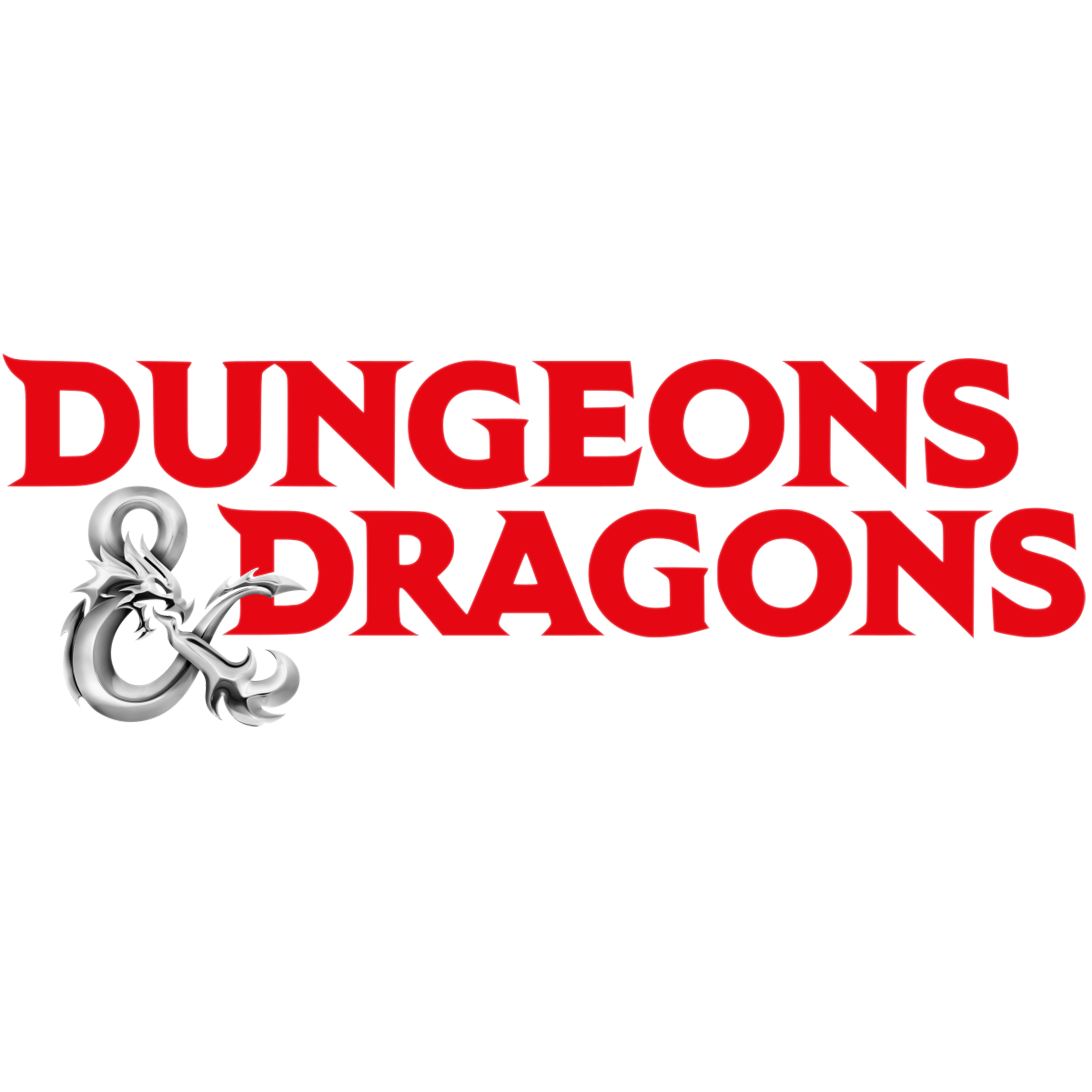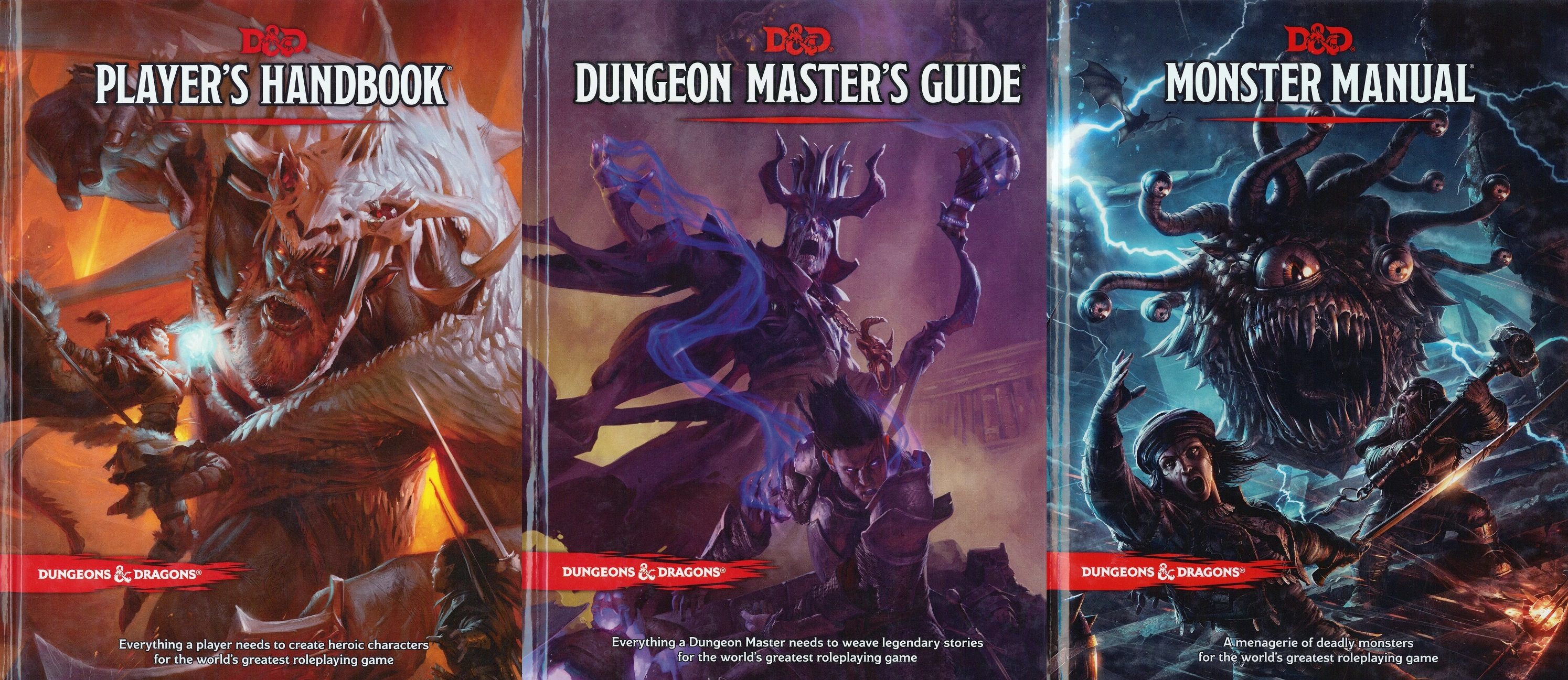

Cultural Resurgence and 5th edition
In January 2012, Wizards of the Coast announced that a new edition of the game, at the time referred to as D&D Next, was under development.[21] In direct contrast to the previous editions of the game, D&D Next was developed partly via a public open playtest.[33] An early build of the new edition debuted at the 2012 Dungeons & Dragons Experience event to about 500 fans.[34] Public playtesting began on May 24, 2012,[35] with the final playtest packet released on September 20, 2013.[36] The 5th edition's Basic Rules, a free PDF containing complete rules for play and a subset of the player and DM content from the core rulebooks, was released on July 3, 2014.[37] The Starter Set was released on July 15, featuring a set of pre-generated characters, a set of instructions for basic play, and the adventure module Lost Mine of Phandelver.[38] The Player's Handbook was released on August 19, 2014.[39] The fifth edition Monster Manual was released on September 30, 2014.[40] The Dungeon Master's Guide was released on December 9, 2014.[41] The edition returns to having only three core rule books, with the Player’s Handbook containing most major races and classes. Since 2014, there have been over twenty 5th edition Dungeon & Dragons books published including new rulebooks, campaign guides and adventure modules.[42][43] In January 2022, an Expansion Gift Set will be released which will include reissued versions of Xanathar's Guide to Everything (2017) and Tasha's Cauldron of Everything (2020), [44] "the two most significant expansions for Dungeons & Dragons Fifth Edition" along with a new sourcebook, Mordenkainen Presents: Monsters of the Multiverse (2022).[45] This sourcebook will include "over 250 monster stat blocks alongside 30 playable races pulled from a variety of sources" such as Volo's Guide to Monsters (2016) and Mordenkainen's Tome of Foes (2018).[45] Mechanically, 5th edition draws heavily on prior editions, while introducing some new mechanics intended to simplify and streamline play. Skills, weapons, items, saving throws, and other things that characters are trained in now all use a single proficiency bonus that increases as character level increases. Multiple defense values have been removed, returning to a single defense value of armor class and using more traditional saving throws. Saving throws are reworked to be situational checks based on the six core abilities instead of generic d20 rolls. Feats are now optional features that can be taken instead of ability score increases and are reworked to be occasional major upgrades instead of frequent minor upgrades. Dieter Bohn, for The Verge, wrote: that the 5th Edition was "designed for one purpose: to bring D&D back to its roots and win back everybody who left during the edition wars".[137] Henry Glasheen, for SLUG Magazine, highlighted that after jumping ship during the 4th Edition era he was drawn back to Dungeons & Dragons with 5th Edition[138] and he considers it "the new gold standard for D20-based tabletop RPGs" Dungeons & Dragons has been cited as encouraging people to socialize weekly or biweekly,[172] teaching problem solving skills which can be beneficial in adult life, and teaching positive moral decisions.[ Even though reception to 5th edition has been positive with regards to its mechanics, that doesn’t mean fans have stopped holding the creators of DnD accountable. In 2020, Polygon reported that "the D&D team announced that it would be making changes to portions of its 5th edition product line that fans have called out for being insensitive".[174] Sebastian Modak, for The Washington Post, reported that the tabletop community has widely approved these changes. Modak wrote that "in its statement addressing mistakes around portrayals of different peoples in the D&D universe, Wizards of the Coast highlighted its recent efforts in bringing in more diverse voices to craft the new D&D source books coming out in 2021. [...] These conversations — around depictions of race and alleged treatment of employees of marginalized backgrounds and identities — have encouraged players to seek out other tabletop roleplaying experiences".[175] Matthew Gault, for Wired, reported positively on the roundtable discussions Wizards of the Coast has hosted with fans and community leaders on diversity and inclusion. However, Gault also highlighted that other efforts, such as revisions to old material and the release of new material, have been less great and at times minimal. Gault wrote, "WotC appears to be trying to change things, but it keeps stumbling, and it’s often the fans who pick up the pieces. [...] WotC is trying to make changes, but it often feels like lip service. [...] The loudest voices criticizing D&D right now are doing it out of love. They don’t want to see it destroyed, they want it to change with the times".[176]
